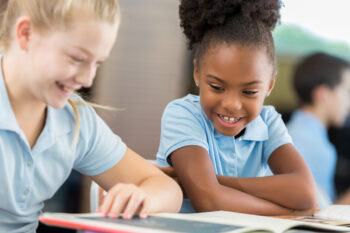 Relationships and sexuality education (RSE) must be taught in ‘a neutral, factual way’ at all schools, including faith schools, says new Welsh Government guidance. RSE must also be ‘inclusive and reflect diversity’ and the new RSE Code explicitly refers to ‘including LGBTQ+ lives’. Wales Humanists – which has long campaigned for an end to faith-based exemptions to RSE policy – has welcomed the news. It says the guidance will make sure that children can no longer be denied vital information on the basis of their background or the type of school they attend.
Relationships and sexuality education (RSE) must be taught in ‘a neutral, factual way’ at all schools, including faith schools, says new Welsh Government guidance. RSE must also be ‘inclusive and reflect diversity’ and the new RSE Code explicitly refers to ‘including LGBTQ+ lives’. Wales Humanists – which has long campaigned for an end to faith-based exemptions to RSE policy – has welcomed the news. It says the guidance will make sure that children can no longer be denied vital information on the basis of their background or the type of school they attend.
The guidance, published today, sets out how RSE will be taught under the new curriculum. It is due to be rolled out from 2022. It includes an RSE Code which sets out the compulsory content for the subject. The guidance also says that all lessons must be ‘objective, critical, and pluralistic’. Schools may teach about different perspectives, including those based on different religions or non-religious worldviews. But they ‘must not seek to indoctrinate a particular view’ on ‘questions of values’. This marks a positive step away from the position in England where faith-based RSE is still permitted. Faith schools will still be able to teach their religious views on relationships in religious education – or ‘Religion, Values, and Ethics’, as it will be known under the new curriculum. But they will still be expected to ‘provide neutral, pluralistic information on other views.’
Faith-based carve-outs to RSE policy often facilitate the teaching of pseudoscience as well as misogynistic and homophobic content. Earlier this year, research by Humanists UK revealed that Catholic schools across Wales and England are teaching RSE using a resource called A Fertile Heart. This teaches pupils that men were ‘created to initiate’ and women to be ‘receiver-responders’ in sexual relationships. The programme also tells pupils the contraceptive pill is dangerous. It uses a video resource that likens same-sex marriage to polygamy. And it argues that gay and lesbian people cannot legitimately marry and so must entirely abstain from sex. However, the resource has been defended by the Roman Catholic Archdiocese of Cardiff on the grounds it ‘authentically reflects Catholic teaching’.
Wales Humanists Coordinator Kathy Riddick commented:
‘All children and young people are entitled to comprehensive, fact-based information on relationships and sexual health, that is fully LGBT-inclusive. This new guidance makes it absolutely clear that RSE must never be used as a vehicle for religious ideology. It marks a hugely positive step away from the harmful faith-based carve-outs to RSE policy that are still in place elsewhere in the UK.
‘We commend the Welsh Government for putting the rights and interests of children first on this matter. We now urge them to take one last step and ban harmful faith-based RSE resources like A Fertile Heart from schools in Wales. That would make sure all children, regardless of background or belief, grow up healthy, happy, and safe.’
Notes:
For further comment or information, please contact Wales Humanists Coordinator Kathy Riddick at kathy@humanists.uk or phone 07881 625 378.
Read the new RSE guidance and RSE Code.
Read our most recent article on the Welsh Act that makes inclusive RSE and RVE law.
Read more about our work on relationships and sex education.
Wales Humanists is part of Humanists UK. Humanists UK is the national charity working on behalf of non-religious people. Powered by 100,000 members and supporters, we advance free thinking and promote humanism to create a tolerant society where rational thinking and kindness prevail. We provide ceremonies, pastoral care, education, and support services benefitting over a million people every year and our campaigns advance humanist thinking on ethical issues, human rights, and equal treatment for all.
In 2021, Humanists UK is celebrating its 125th anniversary with a renewed focus on its history. The new website Humanist Heritage is a rich new web resource that uncovers the untold story of humanism in the UK – a story of people, groups, objects, places, movements, publications, and ideas.
